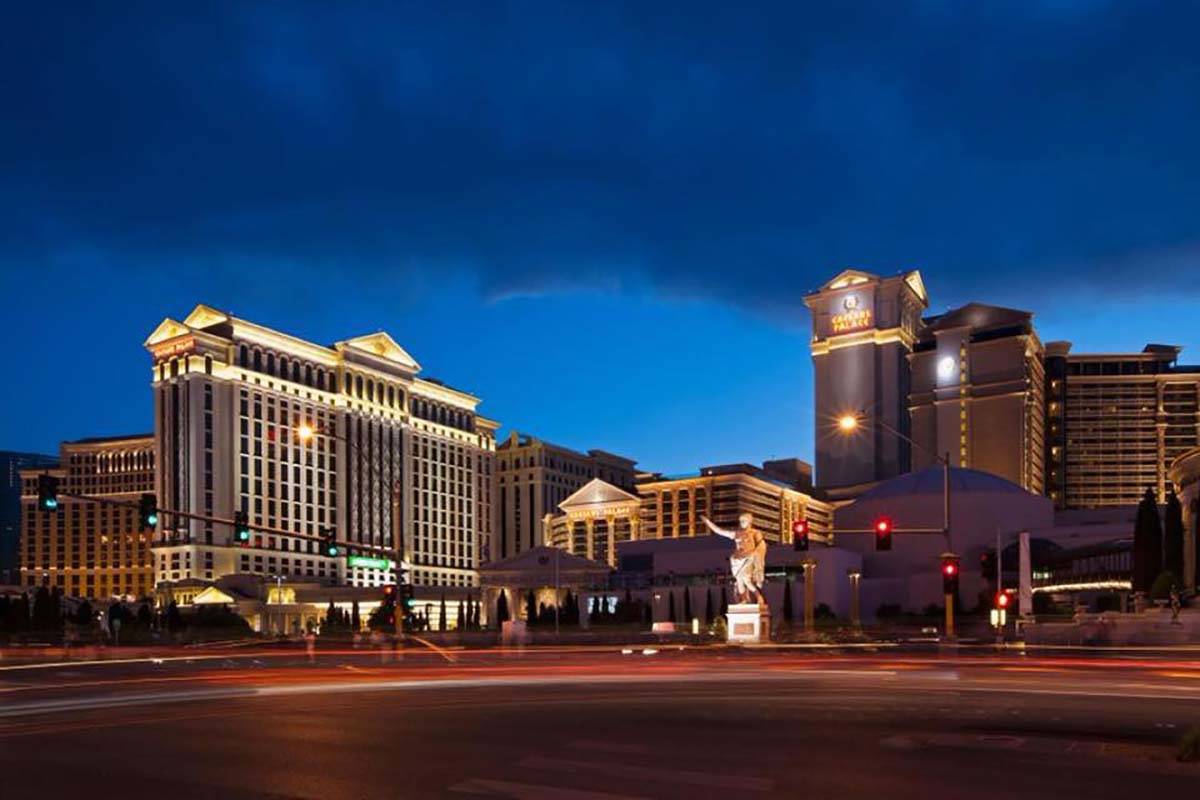Analysts: Caesars-Eldorado deal will be delayed, cost more
The $17.3 billion merger between Eldorado Resorts Inc. and Caesars Entertainment Corp. will still happen, but analysts say it’s going to take longer and cost more.
Representatives of the two companies wouldn’t confirm details Wednesday, but three analysts expect the deal — announced in June and approved by shareholders in November — will be completed despite roadblocks resulting from the coronavirus outbreak.
“There isn’t much new to report at this time,” Eldorado spokesman Jim Leahy said in a Wednesday email. “Ultimately, we still need the three remaining states (Nevada, New Jersey and Indiana) to hold their public meetings in order to approve the transaction.”
The proposed merger isn’t on the board’s April 8 meeting agenda, according to Nevada Gaming Control Board Chairwoman Sandra Morgan.
Brendan Bussmann, director of government affairs for Las Vegas-based Global Market Advisors, LLC, said there’s one other regulatory hurdle — approval by the Federal Trade Commission — and Nevada regulators usually wait for the FTC to act before deliberating.
“I hope it gets done, and I think that it will get done,” Bussmann said Wednesday. “It’s just going to take a little bit more time.”
Delay won’t change benefits
Bussmann said he believes circumstances haven’t changed the underlying reasons to merge. And even though the deal isn’t expected to close by mid-April, as some analysts had projected, the delay won’t change the benefits — but “tick fees” written into the deal will drive up the pricetag.
“As operators start to emerge from this, it’s getting back to basics, it’s understanding at the property level how to move the needle and operate in a quick way, and that’s Eldorado’s sweet spot,” he said. “They’re a very property-driven company, and Eldorado’s exposure in Nevada is less than that of Caesars. You’re going to see the regional markets come on quicker than you will the Nevada market, just because of travel and other things that are in play.”
Bussmann said the regional markets should return to normal faster because most customers are within driving distance, while many Las Vegas customers fly in — and the public isn’t likely to embrace air travel as rapidly.
New York-based Deutsche Bank gaming analyst Carlo Santarelli, in a report to investors last week, said he believed the deal would close for the same reasons. Santarelli also indicated he doesn’t expect banks to back away from their financing commitments and that, even with added risk, the deal is “far more compelling from the (Eldorado) standpoint than the go-alone strategy at present.”
“While most expected the transaction to close in April, ourselves included, we believe the timeline to close has extended, though we believe it is still likely to occur in the first half of 2020,” Santarelli’s report said.
Report: $2.3M a day extra
As for additional cost, Bussmann said agreements routinely have cancellation fees and “tick fees” that increase the asking price if a deal isn’t completed by a predetermined deadline. Bussmann said that if that fee is around $2 million per day and the transaction is extended by a month because of delays in regulatory approval, the price would go up by $60 million.
A report by CNBC Tuesday indicated Eldorado is paying a daily fee of $2.3 million, which accrues and is paid to Caesars shareholders upon closing. A late June closing date means the fee would raise the price tag from $17.3 billion to $17.5 billion — seen by insiders as insignificant considering the size of the deal and the advantage to both companies.
Eldorado’s Leahy would not comment on the CNBC report.
John DeCree of Las Vegas-based Union Gaming said the increased cost shouldn’t be a consideration.
“A CEO once told us in an investor meeting years ago that a good deal doesn’t make sense just because of the purchase price or valuation, but because the combined companies are significantly more valuable together,” DeCree said in a report to investors published Thursday, in reference to Eldorado Resorts CEO Tom Reeg.
DeCree, noting that New Jersey and Nevada would likely be the last states to consider the merger, said New Jersey’s next regulatory meeting will be May 8
“With casinos currently closed across the U.S. and local gaming authorities busy with the pandemic, we think the closing of the merger will be pushed to late May at the earliest but more likely to June,” he said.
Contact Richard N. Velotta at rvelotta@reviewjournal.com or 702-477-3893. Follow @RickVelotta on Twitter.



















































